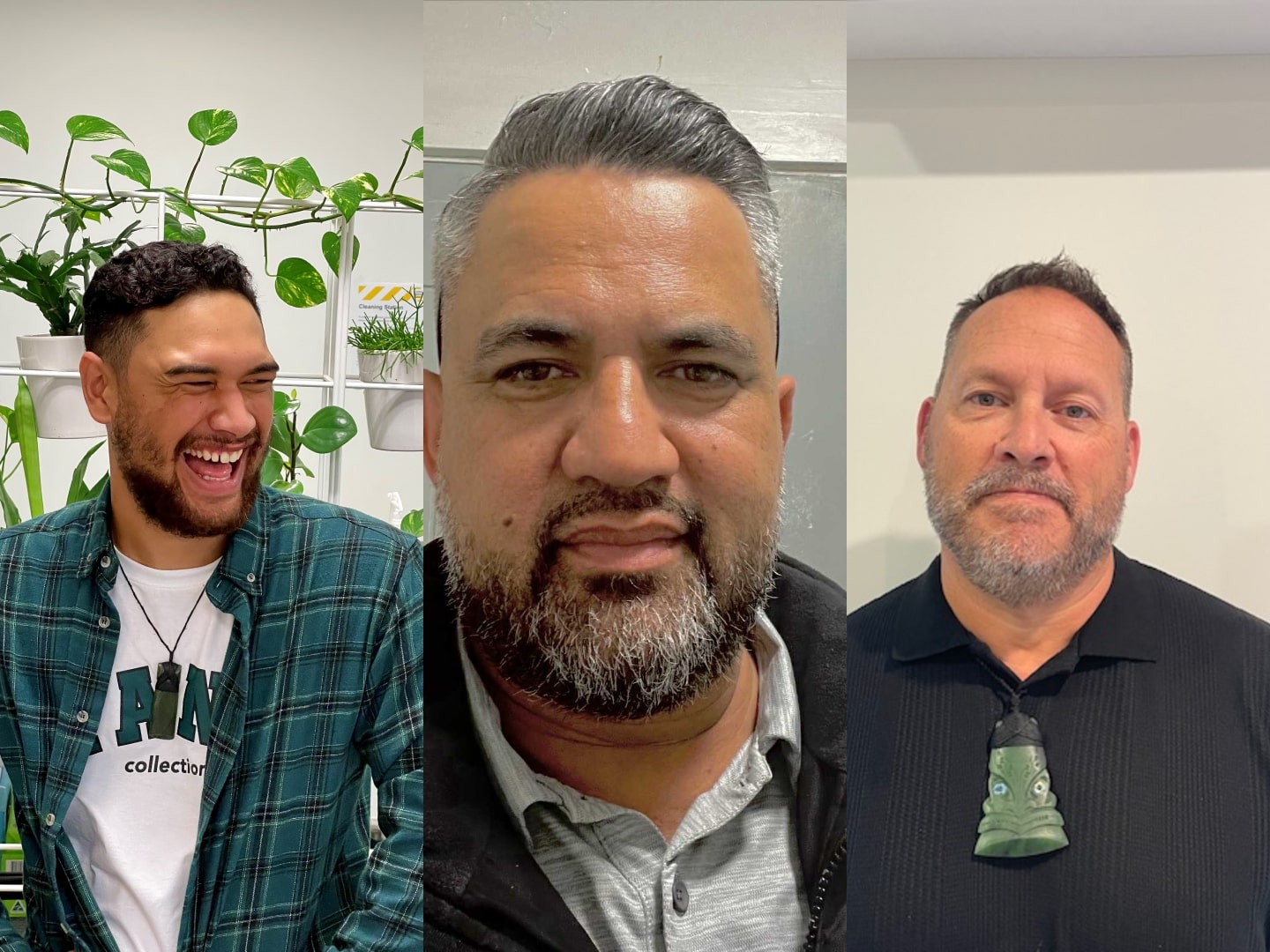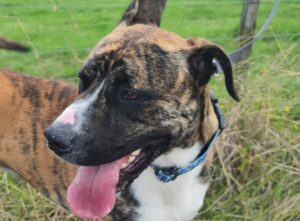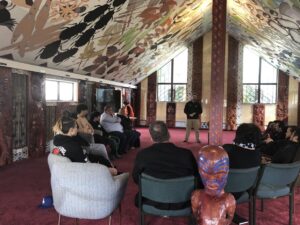They’ve taken different paths, but Michael Barlow, Des Tyler, and Rereahu Collier now represent a historic step for tangata whenua as the first Māori Ward councillors for Thames Valley. Elected unopposed, their roles face uncertainty with a binding vote set to decide the wards’ future. KELLEY TANTAU reports
‘E’ is not for ‘Excellence’.
That was according to Michael Barlow’s school report.
One teacher described him as “a law unto himself”. The label stuck and, for a while, he was just another number.
Des Tyler grew up like many Kiwi boys, chasing dreams of pulling on the black jersey.
Winter meant playing rugby and league; summer was for athletics.
But his career was cut short after a serious injury.
Ironically for Rereahu Collier, his first semesters studying politics and public policy led him to discover he was too honest to be a politician.
It wasn’t until later when a Māori and Pacific Development lecturer challenged him to think bigger: if he wanted to make an impactful change, it had to go beyond the individual.
The three men took a different path, but all have arrived at a historic moment.
For the first time in the Hauraki and Thames-Coromandel districts, they will represent their respective Māori Wards at the council table.
It ensures that for the next three years, tangata whenua will have a voice.
But while the local body elections are underway, there is also a “critical” crossroads – a binding poll that threatens to overturn the very representation just gained.
As part of recent legislative changes made by central government, all councils with Māori Wards are required to hold a poll asking voters whether those wards should remain or be removed.
The question will appear as part of the regular ballot, arriving in letterboxes across the rohe; the results of which will be legally enforceable.
Michael calls it a “critical moment”, one that he, Des, and Rereahu all hope will result in a positive outcome.
“Māori Wards are not just a mechanism for representation, they reflect our commitment to Te Tiriti o Waitangi, ensuring genuine partnership,” he tells The Profile. “Māori Wards ensure that tangata whenua not only have a seat, but a voice at the decision-making table, where underpinning values and lived experiences are heard to help shape the future of our communities.”
Michael was there when Thames-Coromandel District Council unanimously voted to establish Māori Wards in 2023.
The chamber was at capacity, full with community members, iwi, and Māori leaders from across the rohe. At least a dozen people stood before council staff and spoke in support of establishing the Te Tara o Te Ika Māori Ward.
“This role isn’t just about being a voice, it’s about ensuring our people are heard, our tikanga is respected, and our values are woven into the everyday decisions that affect our lives,” Michael says. “It’s a privilege to have a seat at the table and to represent our people in a way that’s grounded in kaupapa Māori and practical outcomes.”
For Michael [Ngāti Maru, Ngāti Hikairo, and Ngā Puhi], the ‘E’ that once meant failure in school has since been replaced by real-world experience.
Told to leave before he could finish sixth form, Michael says he soon found his feet in the workforce, first at Coromandel Meat Processors, later known as Wallace Meats.
“Probably the best job I’ve had,” he says. “Over a span of 11 years, I worked my way up through
different roles, starting as a janitor, handing out overalls, and eventually becoming Site
Manager.”
The self-described high school dropout went to Massey University and, in 2005, completed his Diploma in Meat Technology. From there, he spent another 11 years at Smart Environmental, learning how to navigate both frontline operations and council contract meetings.
In 2018, he and his business partner went out on their own as Coastal Bins Ltd, eventually selling to Waste Management, where Michael is now the Operations Manager.
The experience taught him that leadership isn’t about titles.
“It’s showing up, listening, and doing the mahi.”
With a wealth of governance experience to cap it off, including as chair of Thames South School, Te Tonga o Hoterini Kōhanga Reo, and the Thames Business Association, it’s family that has shaped his journey above all else.
The loss of his second-eldest son last year was an experience he says no parent should ever go through, but it strengthened his commitment to whānau and community.
“I carry him wherever I go, literally. I have his name badge connected to my belt. He now rests at our whānau urupā Whaiapu in Totara with our tīpuna that holds deep meaning for our whānau. Whenever we all drive past, we all toot, and make no apologies for the honking of our horns.”
For Des Tyler [Ngati Hako, Ngati Tamatera], though he never became an All Black, keeping up with the sport from the sidelines taught him valuable lessons in management.
He went on to be involved in rep teams, was the Team Liaison for the Argentina Sevens, and most recently, was part of the Cook Islands Touch Association.
He now works as a kaitiaki at Waiora Waikato Hospital and spent more than 10 years with Ara Poutama Department of Corrections.
“The experience I have gained from doing these roles has helped shape me and given me an opportunity to be involved in projects at a national and Parliament level,” he says. “And my learnings will give me confidence and help set me up with my role in the Te Pakikau o te Ika Māori Ward for the Hauraki District Council.”
Des is a trustee for Tirohia Marae and has a permanent site at Athenree Hot Springs, where he spends summer holidays with his wife and children.
He says he’s looking forward to being one of Hauraki’s first-ever Māori Ward councillors alongside Rereahu Collier.
“A big goal and vision for me is that I want our people to not be afraid to have a kōrero with us, and to know that we are there for them and for our people in Hauraki,” he says. “I want them to be even more proud of where they come from, [and] I definitely want to see Māori Wards continue past 2028 as a result of the poll.
“It’s important for Māori to be able to have representation,” Des says, “and to have their views heard and considered in local councils. It also helps promote partnerships within the council.”
Rereahu Collier [Ngāti Porou, Ngāti Tamaterā] graduated from the University of Waikato in 2017 studying Psychology and Māori and Pacific Development – now known as Māori and Indigenous studies. Ironically, he says, during his first semesters he learned he was too honest to be a politician.
“However, in my final years studying Māori and Pacific Development, one of my lecturers told me that in order for me to make impactful change in the lives I wish to affect, I need to expand to beyond the individual, to reform the system so that it’s geared to make equitable change for our people.
“I was always an observant person trying to understand the perspectives of my peers, and my studies helped me to further develop those observations.”
Rereahu went on to work for Auckland Council for eight years as a Kaikōkiri Ratonga Māori [senior library assistant – Māori services]. He’s now a Senior Strategist Kaupapa Māori and says he’s seen the power of the council and local boards of Tāmaki Makaurau.
The skills he gained in the big city have now brought him full circle, and he’s returned home to Paeroa to share what he’s learned and apply it to the development of the rohe.
Since being back, he’s been involved in kaupapa Māori initiatives, including performing with the regional kapa haka rōpū Hauraki Kōwhao Rau, and supporting the delivery of the Matariki Hautapu ceremony at Mātai Whetū Marae.
“I am excited [for the councillor role] with a hint of nervousness of course,” Rereahu says. “The way I see it, is that my tuākana and pakeke recommended I put my name forward to represent our hāpori Māori. While I may be the first Māori Ward Councillor for the rohe, the work has already been carried out by many of my pakeke in the past, I’m merely in service of the continuance of their work.”
Michael, Des, and Rereahu may have different experiences, but all three share the same commitment: to ensure tangata whenua have a voice in local decision-making.
However, whether that representation continues beyond this term will depend on the outcome of the Māori Ward Poll.
“Mā whero, mā pango, ka rapa te whai,” Rereahu says. “With co-operation, work will be easily completed.”
BY KELLEY TANTAU




